Employee Wellness

Employee Motivation 2.0: Modern Hacks vs. Traditional Methods
Sitting in his corner office, Amit, the CEO of a fast-growing tech firm, rubbed his temples in frustration. “We’re losing good people,” he muttered, scanning the latest resignation letter on his desk. “Our turnover is skyrocketing, productivity is slipping, and I can feel the low energy in the office. What’s going wrong?”

Why Manifestation Might Be the Missing Piece in Your Business Strategy, Even If It Sounds Like Nonsense.
It was a tense Monday morning. Lisa, the CEO of a fast-growing health tech startup, sat down with her COO, Mark. Sales were slowing down, the team was disengaged, and product deadlines were slipping.

Understanding and Managing Social Anxiety: Tips for Teenagers
Social anxiety is more common than most people realize, especially among teenagers who are navigating the challenges of school, friendships, social media, and family expectations. For teens facing social anxiety, the pressures of school, social gatherings, and public situations can feel overwhelming, sometimes resulting in avoidance, negative self-talk, or a sense of isolation. In India, as well as globally, social anxiety has seen an uptick, partly fueled by social media and academic pressures. Understanding and managing social anxiety is crucial for building confidence and enjoying life’s opportunities. Here’s an in-depth look at what social anxiety is, why it’s particularly prevalent during teenage years, and how to address it effectively.

Friendship Breakups: How to Handle Losing Friends and Moving Forward
Friendships are integral to our lives, especially during the teenage years when friends become a central part of our identity and support system. However, just as romantic relationships can end, friendships can also change or dissolve, leaving emotional challenges in their wake. A friendship breakup can be emotionally overwhelming, but understanding ways to cope and move forward can help make the process smoother.

The Long-Term Effects of Gaslighting: Healing and Rebuilding Confidence
Gaslighting is a form of psychological manipulation that causes someone to doubt their perceptions, emotions, or memories. Over time, gaslighting can erode a person’s self-worth and confidence, leading to profound and long-lasting effects on mental health. Though it’s often associated with romantic relationships, gaslighting can occur in various settings, including families, friendships, and workplaces. Understanding the toll it takes and how to heal from it is essential for anyone who has experienced this form of manipulation.

The Science of Happiness: Understanding Mental Health and How to Cultivate Joy
In a world that seems to be constantly demanding more from us, the quest for happiness has become more pressing than ever. But what does science tell us about happiness? Is it merely the absence of sadness, or is there something deeper and more profound about cultivating joy? In this comprehensive blog, we will delve into the scientific understanding of happiness, how it impacts mental health, and what actionable steps you can take to bring more joy into your life.

How Mindfulness and Meditation Can Help Reduce Anxiety and Improve Mental Health
In today’s fast-paced world, where stress and anxiety seem to be ever-present, mindfulness and meditation have emerged as powerful tools to improve mental health. These practices, rooted in ancient traditions yet backed by modern science, offer effective strategies to combat the mental strain many of us experience daily. By helping you become more present and grounded, mindfulness and meditation can pave the way for a more peaceful and resilient mind.

Dealing with Burnout: How to Recognize and Recover from Chronic Stress
Burnout is more than just feeling stressed or overwhelmed. It’s a state of emotional, physical, and mental exhaustion caused by excessive and prolonged stress. Burnout often occurs when you feel overwhelmed, emotionally drained, and unable to meet constant demands. As it persists, it can lower your productivity and leave you feeling helpless, cynical, and resentful. With the rise in workload and constant connectivity in today’s world, especially post-pandemic, burnout has become a common issue among professionals, students, and caregivers.
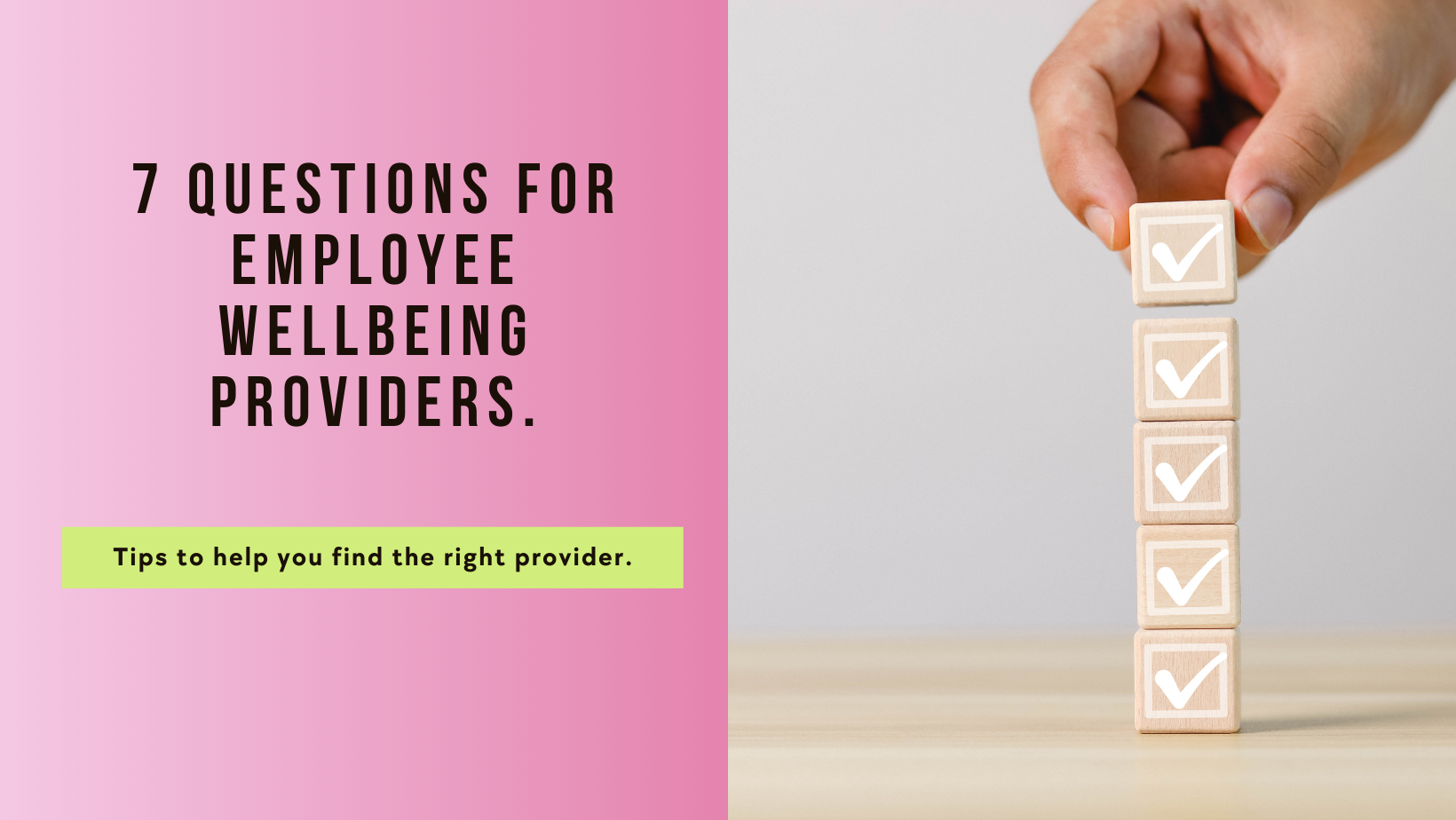
7 questions you should ask every employee wellbeing provider
7 questions you should ask every employee wellbeing provider Selecting an employee well-being provider is a critical decision for organizations committed to fostering a healthy and productive workplace. With the growing awareness of mental health in India, companies are increasingly seeking comprehensive solutions like CareMe Health to support their employees' well-being. When evaluating potential providers, asking the right questions can guide you to make an informed choice that aligns with your organization's values and needs. Here are seven essential questions to consider, backed by insights from studies and real-world practices.
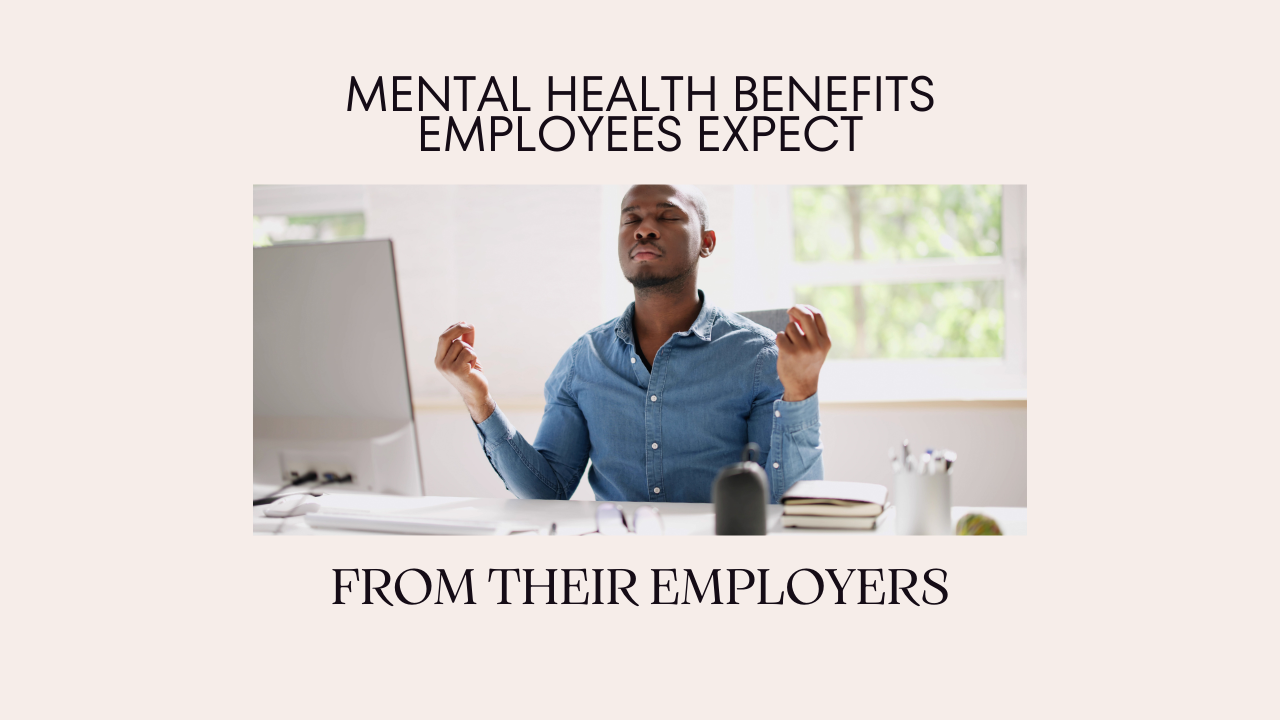
The mental health benefits employees expect from their employers
The Mental Health Benefits Employees Expect from Their Employers As we navigate the complexities of the modern workplace, the importance of mental health support has never been clearer. Employees across India are seeking workplaces that not only acknowledge but actively support their mental well-being. Here's what employees are looking for and how CareMe Health is meeting these needs.
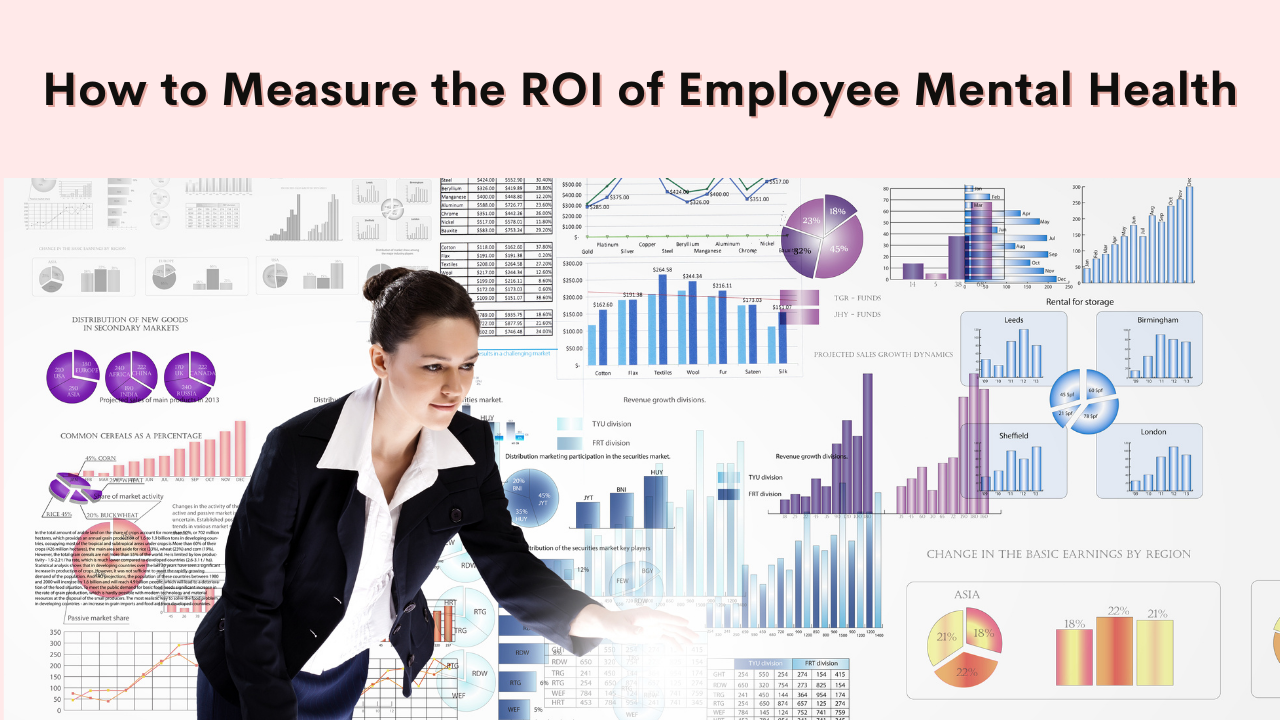
How to measure the ROI of employee mental health
In recent years, the corporate world has witnessed a paradigm shift in the understanding and prioritization of mental health within the workplace. Once sidelined, employee mental health has now emerged as a pivotal aspect of overall well-being and productivity, marking a significant change in how organizations approach workforce management. This growing recognition stems from an undeniable body of research and real-world outcomes demonstrating the intricate link between an employee's mental wellness and their performance, creativity, and engagement levels. As businesses strive to cultivate thriving work environments, the focus on mental health initiatives has intensified, underscoring the need for strategic investments in this area.
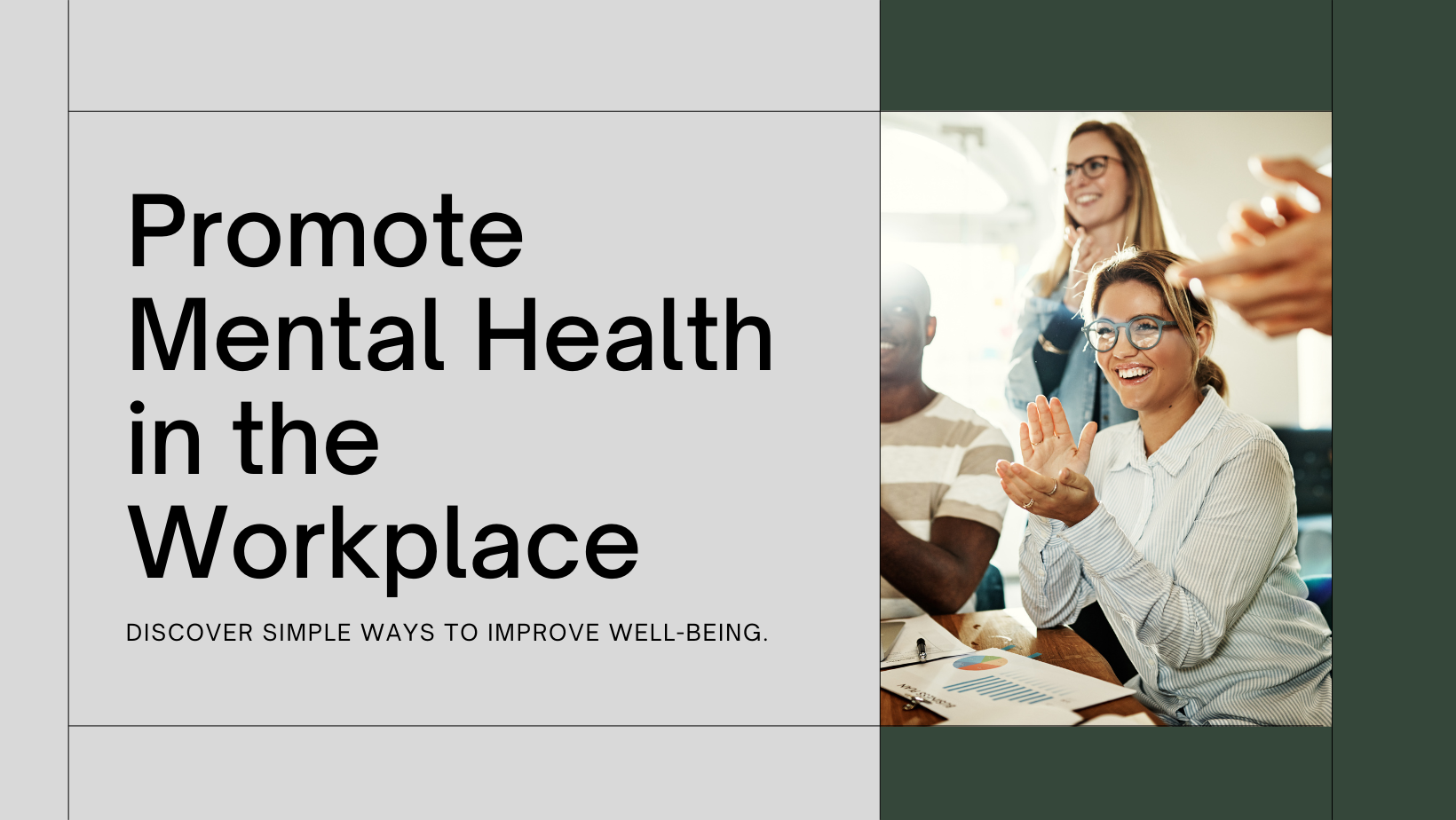
How to promote mental health in the workplace in 2024
In the rapidly evolving landscape of 2024, the significance of mental health in the workplace has never been more paramount. The global shift towards recognizing mental well-being as a crucial component of overall health is reshaping corporate cultures and policies worldwide, particularly in the wake of the transformative post-pandemic era. The enduring impact of the COVID-19 pandemic has precipitated a monumental shift in workplace dynamics, compelling organizations to reevaluate and prioritize the mental well-being of their employees as a fundamental aspect of their operational ethos.
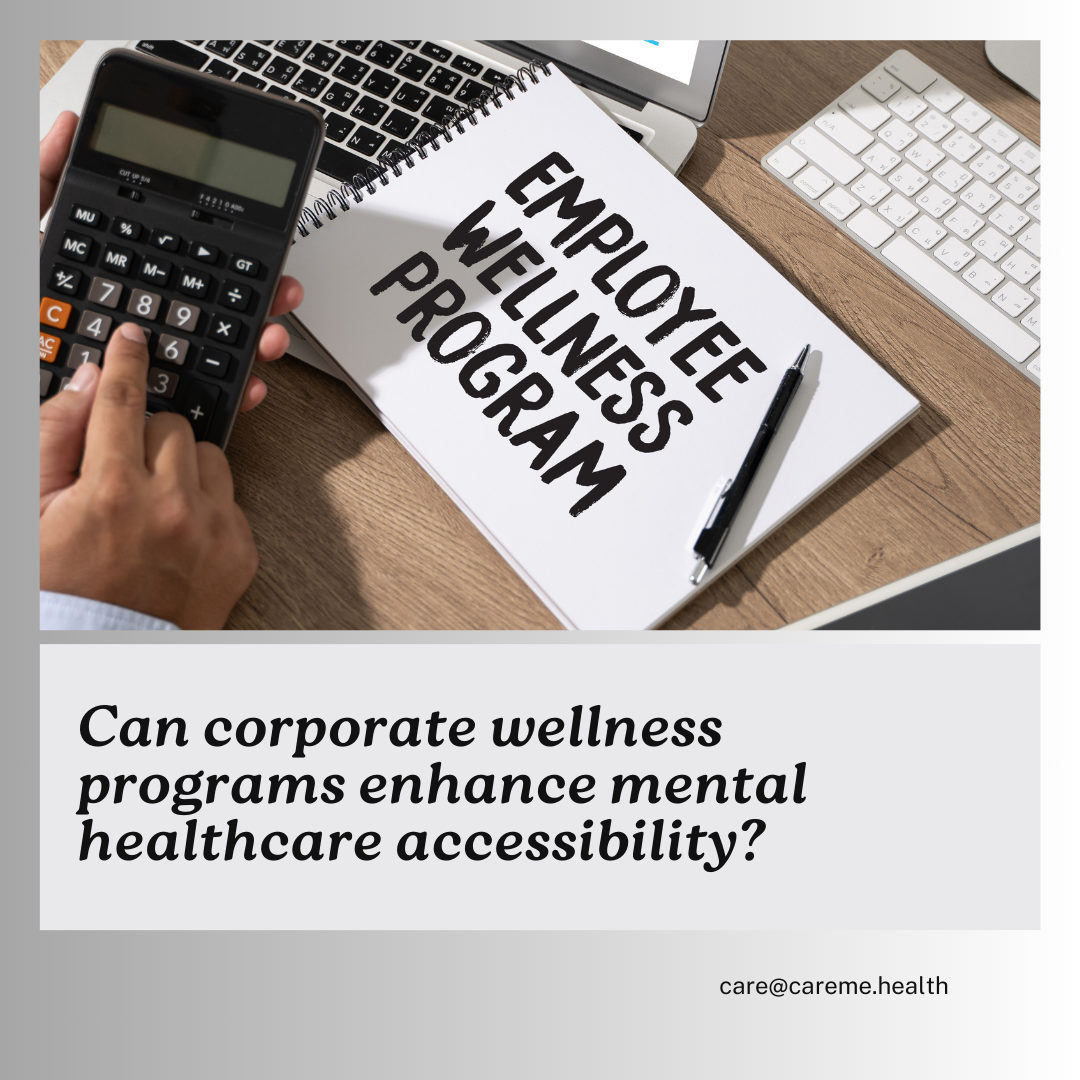
Company Wellness Programs: Can They Bridge the Gap in Mental Healthcare Access?
In today's fast-paced corporate world, mental health has emerged as a critical component of overall employee well-being. As businesses strive to foster a productive and positive work environment, the implementation of company wellness programs has gained momentum. These initiatives are not just about physical health; they increasingly encompass mental health support, recognizing its pivotal role in employee performance and satisfaction. This blog explores the potential of company wellness programs to bridge the gap in mental healthcare access, highlighting their benefits, challenges, and the path forward.
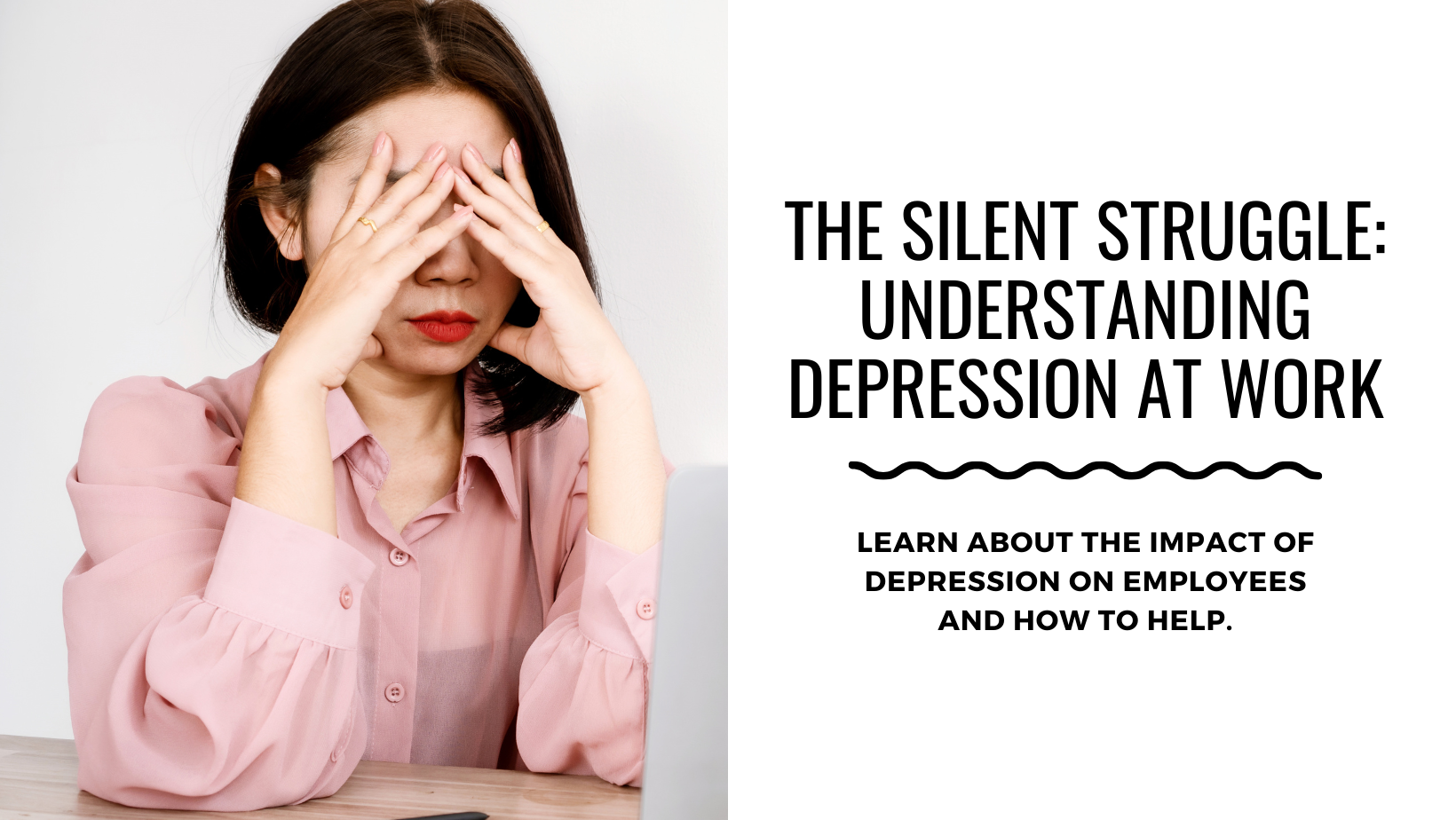
The Silent Struggle: Understanding Depression in the Workplace
Depression is like a shadow that follows you around, not just at home but into your workplace too. It's much more than feeling sad or having a bad day. Depression is a real medical condition that can deeply affect how you think, feel, and handle daily activities such as sleeping, eating, or working. When we talk about "depression symptoms," we're referring to a range of feelings like persistent sadness, a sense of hopelessness, and a lack of interest in things that once brought joy.

Psychological Counseling for Students: A Guide
Mental Health is a growing concern among students in India, and its significance cannot be overstated. The pressures and challenges faced by Indian students have led to an alarming rise in stress, anxiety, and depression cases. In recent years, it has become increasingly evident that a large number of Indian students are grappling with their mental well-being.
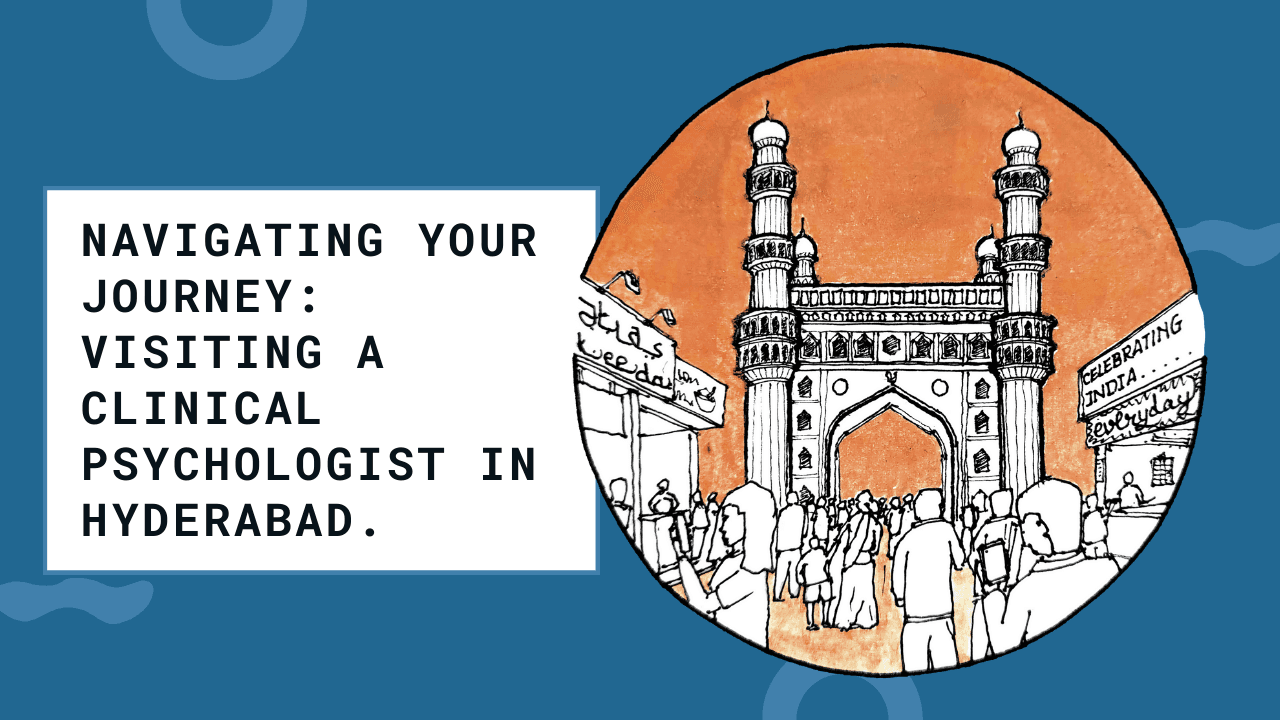
Navigating Your Journey: What To Expect When Visiting a Clinical Psychologist in Hyderabad
In India, where the tapestry of culture is rich and diverse, mental health has traditionally taken a backseat amidst the myriad priorities of its billion-plus inhabitants. However, the tide is turning, and there's a growing recognition of the critical role mental well-being plays in the overall quality of life.
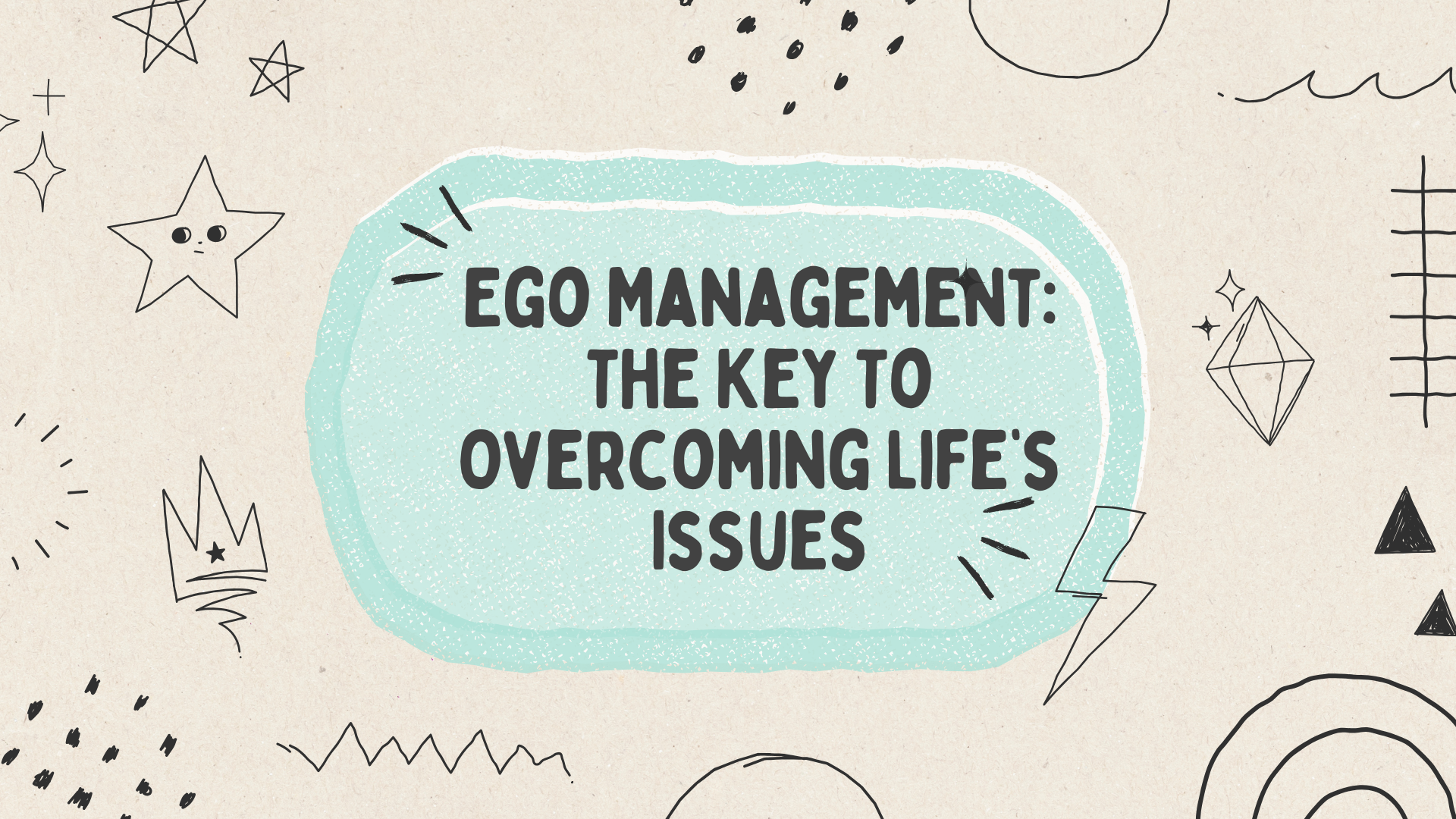
Ego Management: The Key To Overcoming Life’s Issues
The ego is a concept in psychology that refers to the part of the self that is responsible for a person’s sense of self-awareness and self-identity.

Crafting Your 2024 Calendar: Balancing Productivity and Mental Wellness
In today's fast-paced world, where our personal and professional lives are increasingly intertwined, the significance of planning and organization cannot be overstated, especially when it comes to promoting mental health. As we stand on the cusp of 2024, it's essential to recognize how a well-structured calendar can be much more than a simple scheduling tool; it can be a cornerstone of mental wellness.

Mental Health At Work
A healthy mental health can result in more involved employees, larger performance and better business culture.

How Do We Find A Balance Between Work And Private Life?
Maintaining a work-life balance has challenging post-pandemic. with the constantly changing work environment, it cannot be easy to wrap up your life which brings out a better quality of life. Many studies have shown the importance of healthy work and private life to bring overall life satisfaction and sustainable well-being to people.

How To Encourage Work-Life Balance In Your Workplace
Work-life balance is becoming an increasingly important issue in the modern workplace. Many employees struggle to balance their work and personal responsibilities, leading to stress, burnout and decreased productivity.
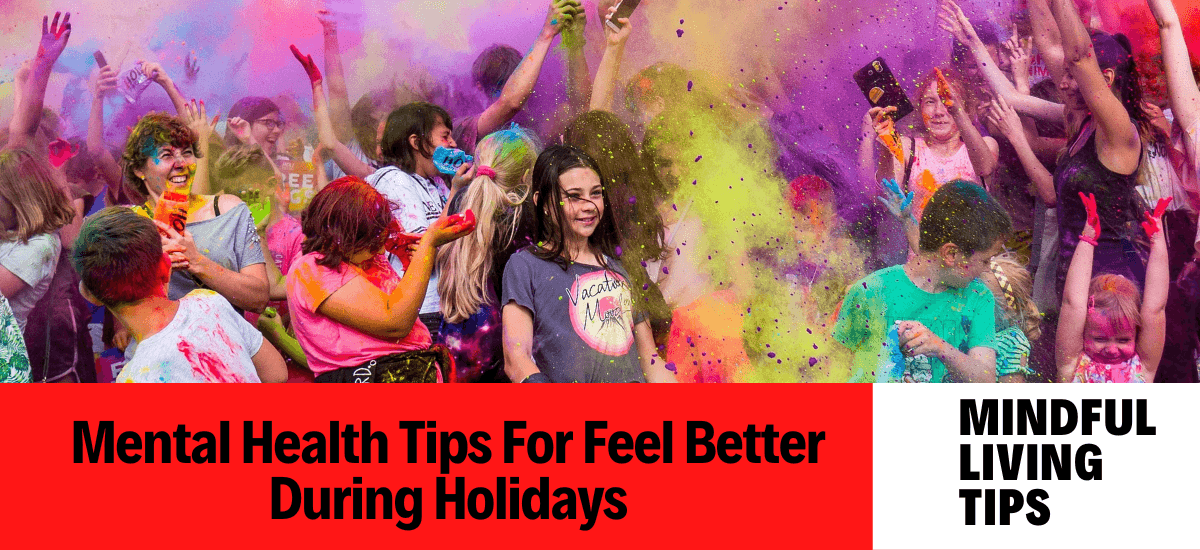
7 Mental Health Tips For Feel Better During Holidays
A holiday is not a homogeneous concept; everyone can experience holidays differently depending on a variety of aspects like work responsibilities, caregiving duties, cultural norms, and socioeconomic status.